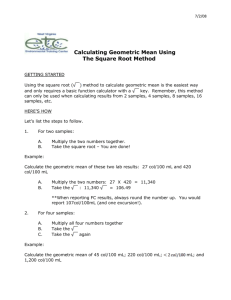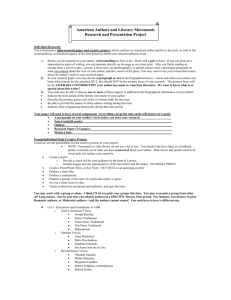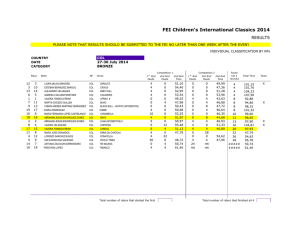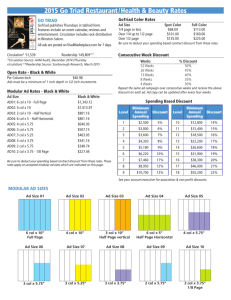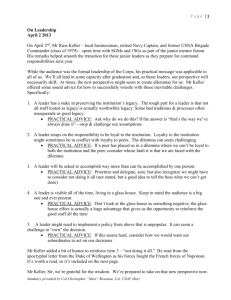Instructions - Pegasus @ UCF
advertisement
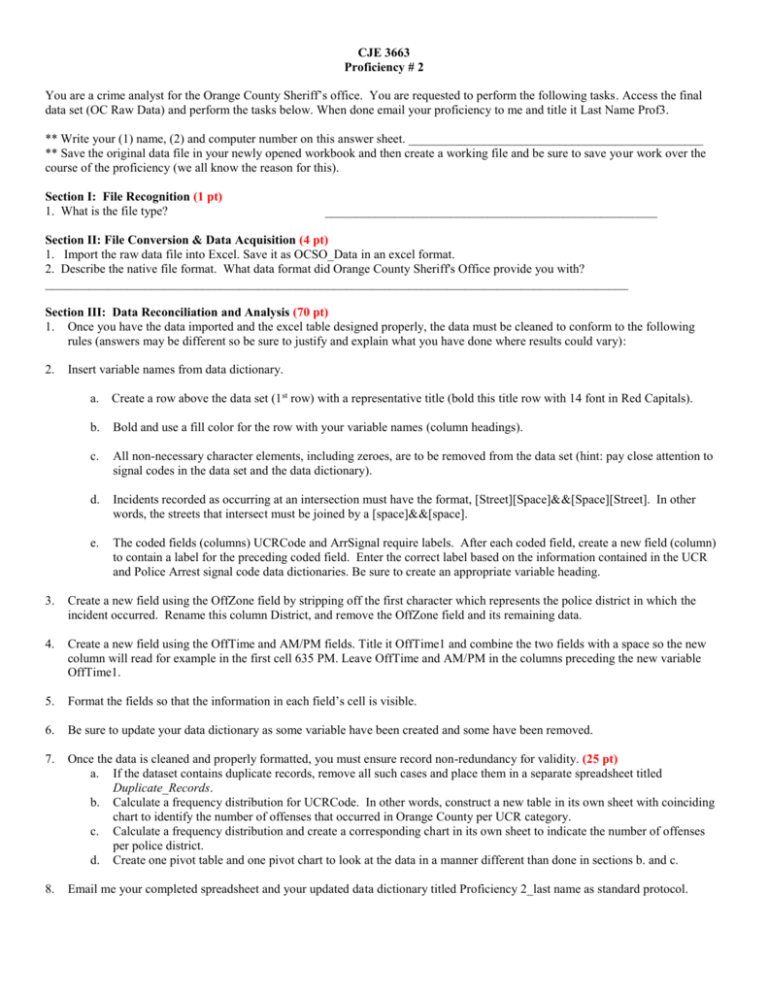
CJE 3663 Proficiency # 2 You are a crime analyst for the Orange County Sheriff’s office. You are requested to perform the following tasks. Access the final data set (OC Raw Data) and perform the tasks below. When done email your proficiency to me and title it Last Name Prof3. ** Write your (1) name, (2) and computer number on this answer sheet. _______________________________________________ ** Save the original data file in your newly opened workbook and then create a working file and be sure to save your work over the course of the proficiency (we all know the reason for this). Section I: File Recognition (1 pt) 1. What is the file type? _____________________________________________________ Section II: File Conversion & Data Acquisition (4 pt) 1. Import the raw data file into Excel. Save it as OCSO_Data in an excel format. 2. Describe the native file format. What data format did Orange County Sheriff's Office provide you with? _____________________________________________________________________________________________ Section III: Data Reconciliation and Analysis (70 pt) 1. Once you have the data imported and the excel table designed properly, the data must be cleaned to conform to the following rules (answers may be different so be sure to justify and explain what you have done where results could vary): 2. Insert variable names from data dictionary. a. Create a row above the data set (1st row) with a representative title (bold this title row with 14 font in Red Capitals). b. Bold and use a fill color for the row with your variable names (column headings). c. All non-necessary character elements, including zeroes, are to be removed from the data set (hint: pay close attention to signal codes in the data set and the data dictionary). d. Incidents recorded as occurring at an intersection must have the format, [Street][Space]&&[Space][Street]. In other words, the streets that intersect must be joined by a [space]&&[space]. e. The coded fields (columns) UCRCode and ArrSignal require labels. After each coded field, create a new field (column) to contain a label for the preceding coded field. Enter the correct label based on the information contained in the UCR and Police Arrest signal code data dictionaries. Be sure to create an appropriate variable heading. 3. Create a new field using the OffZone field by stripping off the first character which represents the police district in which the incident occurred. Rename this column District, and remove the OffZone field and its remaining data. 4. Create a new field using the OffTime and AM/PM fields. Title it OffTime1 and combine the two fields with a space so the new column will read for example in the first cell 635 PM. Leave OffTime and AM/PM in the columns preceding the new variable OffTime1. 5. Format the fields so that the information in each field’s cell is visible. 6. Be sure to update your data dictionary as some variable have been created and some have been removed. 7. Once the data is cleaned and properly formatted, you must ensure record non-redundancy for validity. (25 pt) a. If the dataset contains duplicate records, remove all such cases and place them in a separate spreadsheet titled Duplicate_Records. b. Calculate a frequency distribution for UCRCode. In other words, construct a new table in its own sheet with coinciding chart to identify the number of offenses that occurred in Orange County per UCR category. c. Calculate a frequency distribution and create a corresponding chart in its own sheet to indicate the number of offenses per police district. d. Create one pivot table and one pivot chart to look at the data in a manner different than done in sections b. and c. 8. Email me your completed spreadsheet and your updated data dictionary titled Proficiency 2_last name as standard protocol. Proficiency # 2 Data Dictionary Variables (Raw Data) Col 1 Col 2 Col 3 Col 4 Col 5 Col 6 Col 7 Col 8 Col 9 Col 10 Col 11 Col 12 Col 13 Col 14 Col 15 Col 16 CaseNo UCRCode OffDate OffTime AM/PM OFFZONE OffAdd VicDOB VicRace VicSex ArrChr PerpDOB PerpRace PerpSex ArrDate ArrSignal Data Dictionary of UCR Offenses UCR Code 10 20-21 30 31 40-45 50-59 60-69 70-79 80+ Description Murder Rape Armed Robbery Simple Robbery Assault Burglary Theft Auto Theft Other Data Dictionary of Arrest Signal Codes Code 18 21 30 34 35 37 51 59 60 63 64 65 67 68 Description Traffic Complaints Homicide Agg Battery Simple Battery Agg Assault Agg Arson Criminal Mischief Agg Burg Criminal Trespassing Armed Robbery Simple Robbery Theft Unauthorized Use of Movable 69 Possession of Stolen Property 95, 95G Illegal Carrying of Weapons 100 Hit and Run 103 Agg Assault 103F Fight 106 Obscenity 966 Drug Law Violations 103F Fight 17F Fugitive Attachment 17J Juvenile Attachment 34C Cutting 34S Shooting 62 Residential Burglary 64G Armed Robbery (Gun) 67A Auto Theft 67B Bike Theft 67P Pick Pocket 67S Shoplifting Any remaining Other Signals


